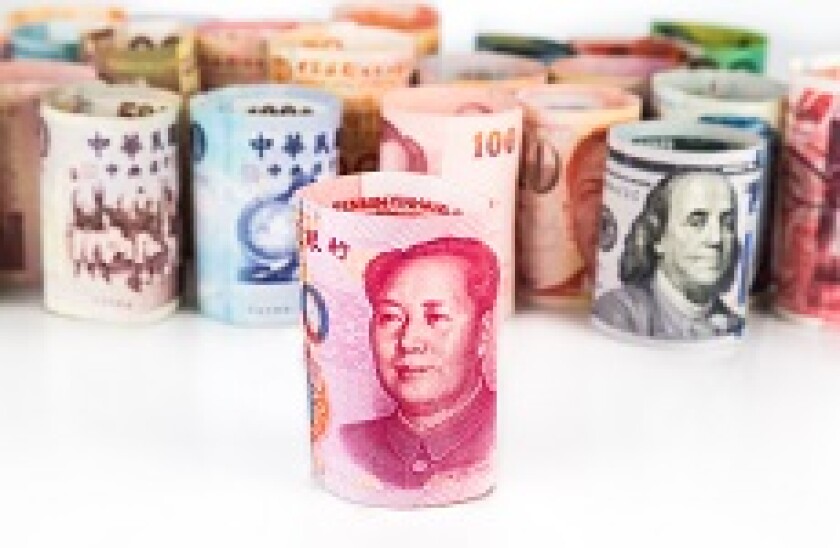It is easy to write off renminbi internationalisation these days, and there is no shortage of critics who do so. They point to declining offshore renminbi (CNH) activity globally, from the usage of the renminbi as a cross-border trade settlement currency to the struggling dim sum bond market.
There is a large menu of indicators which these critics can use to back up their claims. The Standard Chartered Renminbi Globalisation Index (RGI) recently fell to a 39-month low, Bank of China’s Offshore RMB Index is still below its 2015 peak, and SWIFT’s RMB tracker , which ranks currencies by global payments usage, shows the renminbi falling out of the top five and even struggling to beat the Swiss franc. Surely these numbers don’t lie?
They don’t, but they can mislead. China has clearly changed its strategy to internationalise the renminbi from getting foreign investors to use the renminbi in their home countries, which it hoped to achieve by setting up several offshore RMB business hubs, to instead attracting investors from around the world to buy RMB assets directly in China.
Nothing shows this change more clearly than the RMB fixed income market. Instead of propping up the dim sum bond market, China has thrown open the doors to its $9tr onshore bond market to foreign investors through channels such as the China interbank bond market (CIBM) Direct and the recently launched Bond Connect.
These programmes, together with the opening of the onshore FX hedging market, puts China a step closer to inclusion in the major emerging market (EM) bond indices, which experts say could bring as much as $300bn of inflows to the onshore market in the next two to three years.
Meanwhile, the window for Chinese capital to go out remains shut. Regulators have a tight grip on capital outflows, keeping programmes for domestic investors to take renminbi overseas largely suspended. Even Bond Connect, which is supposed to open mutual access between China’s and Hong Kong’s bond markets, only allows foreign investors to trade Chinese bonds, so-called northbound trading.
China is likely to stick with this strategy as it fulfils the government’s goal of simultaneously keeping its currency reserves stable while internationalising the renminbi. As the PBoC’s deputy governor Pan Gongsheng wrote on July 2, maintaining stable FX reserves is a safeguard for Chinese economic growth, and protects its financial system from volatilities in the global financial markets.
The obvious exception to this clampdown is China’s Belt and Road Initiative, the flagship investment scheme to build infrastructure along the ancient Silk Road. But even as experts expect Belt and Road to boost renminbi’s global usage, it is uncertain as to how many of these projects will be funded in renminbi.
What is clear, however, is that the future of the renminbi as an international investment currency — a pillar of the RMBi strategy — has shifted from the offshore to the onshore market much more rapidly than most market players had expected, with the Bond Connect being a case in point. This is a much more significant step than the opening of the dim sum, despite how exciting dim sum bonds appeared a few years ago.
Critics of China’s renminbi internationalisation strategy should reflect on this change and reshape their metrics accordingly — or they risk having an increasingly distorted perception of where RMB internationalisation really stands.

